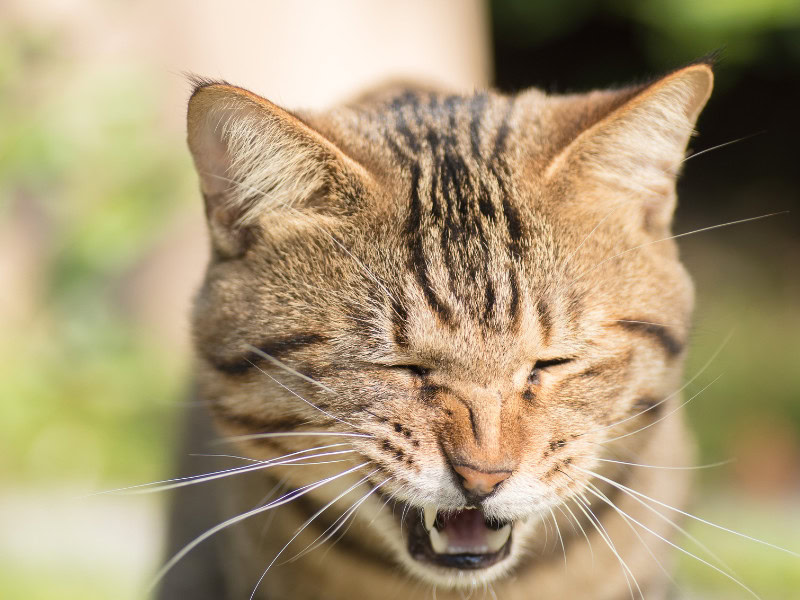It’s alarming when your cat starts sneezing uncontrollably out of the blue. One minute they’re napping peacefully, and the next they’re having a sneezing fit that seems to never end. As a cat parent, it’s natural to worry and wonder what’s causing this sudden change in your fur baby’s health.
The truth is, there are several reasons why your cat may be sneezing so much all of a sudden. From viral infections to allergies, dental issues to foreign objects stuck in their nose, the culprits behind your cat’s sneezing can vary.
Some causes are minor and will resolve on their own, while others may require a trip to the vet. But don’t panic just yet – we’ll walk you through the most common causes, help you spot the red flags, and provide information on treatments that will help your feline feel better.
Why is My Cat Suddenly Sneezing So Much?
As a cat parent, I know firsthand how concerning it can be when your pet starts sneezing out of the blue. You’re probably wondering, “Why is my cat sneezing all of a sudden?”
All cats sneeze occasionally, but sometimes a sneeze is more than just a sneeze. The truth is, there are several potential culprits behind those cute little “achoos”.
From upper respiratory infections to environmental irritants, the causes of cat sneezing can be as varied as our kitties themselves.
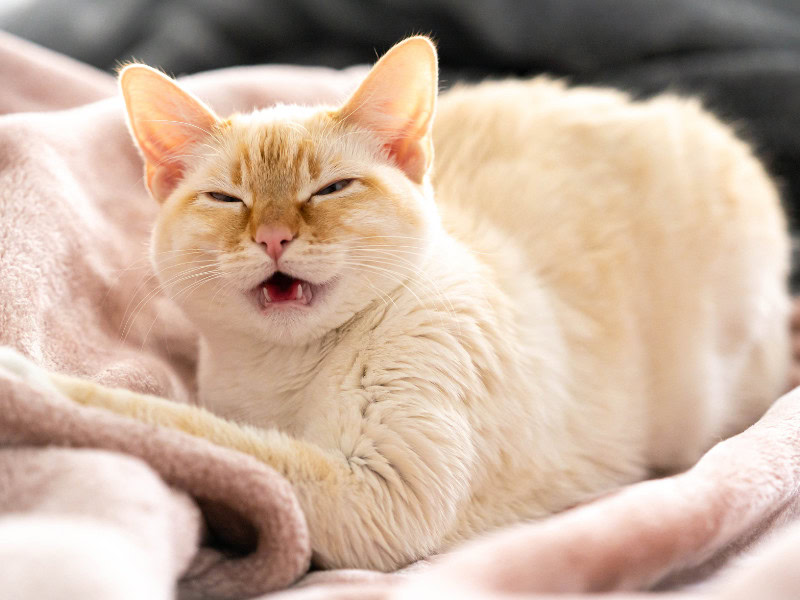
Upper Respiratory Infections: Common Causes of Sudden Sneezing in Cats
One of the most common reasons for sudden sneezing in cats is an upper respiratory infection (URI). These pesky infections are usually caused by viruses like feline herpesvirus or bacteria like Bordetella bronchiseptica.
I’ve seen plenty of patients with nasty URIs. These cats are typically sneezing non-stop and have runny noses and watery eyes. It’s heartbreaking to see them so uncomfortable.
Respiratory infections are highly contagious among cats, especially in multi-cat households or shelters. They can cause a a number of symptoms other than just sneezing, such as:
- Nasal discharge
- Congestion
- Coughing
- Fever
- Loss of appetite
Feline Herpesvirus
Feline herpesvirus (FHV-1) is a particularly sneaky culprit when it comes to cat sneezing. This viral infection can cause upper respiratory symptoms that come and go throughout a cat’s life.
Once a cat is infected with FHV-1, the virus can lie dormant in their body and reactivate during times of stress or illness. This means that even if your cat seems to recover from their sneezing bout, the herpesvirus may rear its ugly head again in the future.
Bacterial Infections
While viral infections are the most common cause of sudden sneezing in cats, bacterial infections can also be to blame. These opportunistic pathogens often swoop in after a viral infection has weakened the cat’s immune system.
Bacterial infections like Bordetella or Chlamydia can cause persistent sneezing, nasal discharge, and other upper respiratory symptoms. The good news is that these infections are usually quite responsive to antibiotics prescribed by your vet.
Fungal Infections
In rare cases, sudden sneezing in cats can be caused by fungal infections like cryptococcosis. These infections typically occur when a cat inhales fungal spores from contaminated soil or bird droppings.
Fungal infections can be trickier to diagnose and treat than viral or bacterial ones. They often require a combination of antifungal medications and supportive care to resolve.
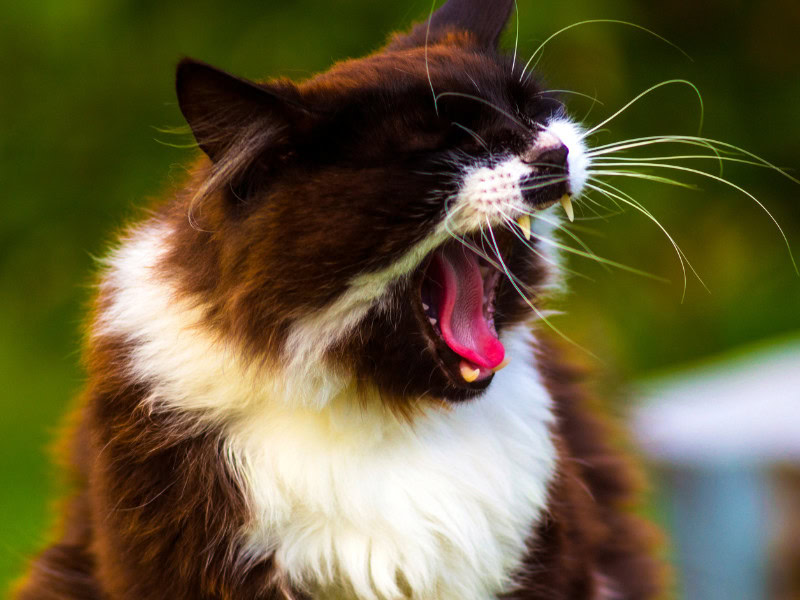
Other Reasons Why Your Cat May Be Sneezing
While respiratory infections are often the first thing that comes to mind when a cat starts sneezing, they’re not the only potential culprit. There are a few other sneaky causes of sudden sneezing in cats that are worth mentioning.
Dental Disease
Believe it or not, dental problems can sometimes manifest as sneezing in cats. If your kitty has dental disease or an abscess, the infection can spread to their nasal passages and cause inflammation and irritation.
Although not as common as URIs, sneezing caused by dental disease isn’t exactly uncommon either. If your cat’s sneezing is accompanied by bad breath, drooling, or difficulty eating, it’s worth having your vet take a peek at their pearly whites.
Foreign Objects in the Nasal Passage
Cats are curious creatures, and curious cats can get into trouble. If your kitty gets a little too nosy (pun intended) and inhales a foreign object like a blade of grass or a piece of litter, it can trigger a sneezing fit.
In most cases, the offending object will work its way out on its own with a few good sneezes. But if the sneezing persists or is accompanied by nasal discharge (especially if it’s bloody) or difficulty breathing, it’s time to see the vet. They may need to remove the object manually to give your cat some relief.
Allergies
Just like humans, cats can develop allergies to things in their environment. Pollen, dust, mold, and even certain foods can trigger an allergic reaction that includes sneezing, watery eyes, and itchy skin.
If you suspect your cat may have allergies, your vet can help identify the culprit. In the meantime, using an air purifier, vacuuming regularly, and switching to a hypoallergenic diet may help reduce your cat’s symptoms.
Tumors
In very rare cases, sudden sneezing in cats can be a sign of a nasal tumor. These growths can be benign or malignant, and they can cause sneezing as well as nasal discharge, difficulty breathing, and facial deformity.
If your cat’s sneezing is persistent or accompanied by any of these other red flags, it’s important to have them checked by a vet right away. While nasal tumors are uncommon, early diagnosis and treatment can make a big difference in your cat’s prognosis.
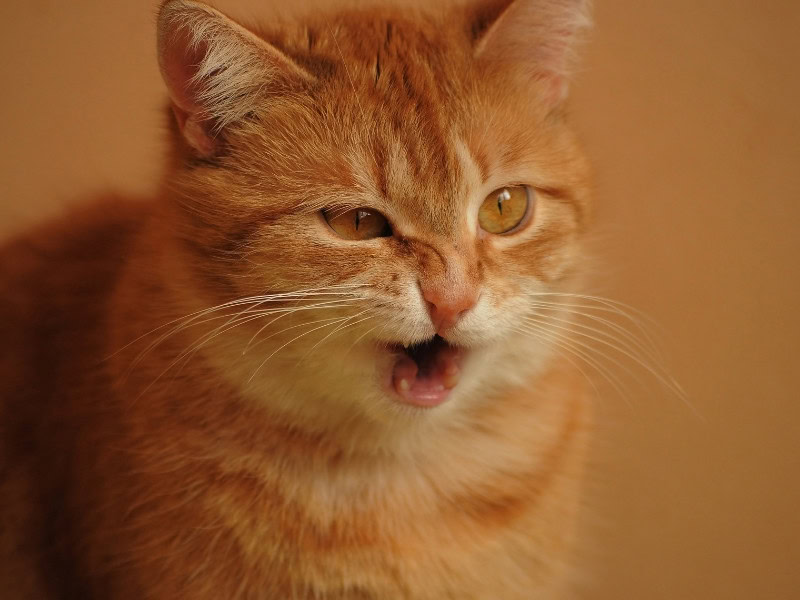
Symptoms to Watch Out for When Your Cat Is Sneezing (and When It’s Time to Take Them to the Vet)
Alright, so your cat’s been sneezing up a storm and you’re starting to get worried. I totally get it – as cat parents, we can’t help but fret over every little sniffle and sneeze. But how do you know when your cat’s illness requires medical attention?
Excessive Sneezing
First things first: let’s talk about excessive sneezing. A sneeze here or there is totally normal for cats, just like it is for humans. But if your kitty is having sneezing fits that last for more than a day or two, it’s time to take notice.
Excessive sneezing can be a sign that something more serious is going on, like a respiratory infection or an irritant lodged in their nasal passage. If your cat’s sneezing is accompanied by other symptoms like nasal discharge, lethargy, or loss of appetite, it’s definitely time to give your vet a call.
Nasal Discharge
Speaking of nasal discharge, let’s talk about snot. I know, I know – it’s not the most pleasant topic, but it’s an important one when it comes to your cat’s health. If your sneezing cat also has clear, watery discharge coming from their nose, it could be a sign of allergies or a viral infection.
But if the discharge is thick, yellow, or green, it’s more likely that your kitty has a bacterial infection that needs to be treated with antibiotics, which means it’s time for a trip to the vet.
Enlarged Lymph Nodes
Another symptom to watch out for when your cat is sneezing is enlarged lymph nodes. Lymph nodes are small, bean-shaped structures that are part of your cat’s immune system. They’re located throughout the body, including under the jaw and in the neck.
If your cat’s lymph nodes are swollen or tender to the touch, it could be a sign that their body is fighting off an infection.
Lethargy
If your sneezing cat becomes lethargic, inactive, or unresponsive, it’s a sign that their condition is more serious than a simple case of the sneezes. Lethargy can indicate a systemic infection, severe respiratory distress, or another underlying health problem.
In such cases, prompt veterinary care is required to diagnose and treat the issue and prevent further worsening of your cat’s health.
Decreased Appetite and Weight Loss
Finally, let’s talk about appetite and weight loss. If your sneezing cat is also turning up their nose at their favorite treats or looking a little thinner than usual, it’s time to take notice.
Respiratory infections and other illnesses can cause cats to lose their appetite, which can lead to rapid weight loss if not addressed. If your cat’s sneezing is accompanied by a decreased interest in food or sudden weight loss, it’s important to have them evaluated by a vet right away.
Key Takeaway:
Sneezing accompanied by difficulty breathing, open-mouth breathing, or rapid, shallow breaths is a medical emergency. These symptoms can indicate a severe respiratory obstruction or infection that requires immediate veterinary intervention.
If you notice any signs of respiratory distress in your sneezing cat, contact your veterinarian or an emergency animal hospital right away.
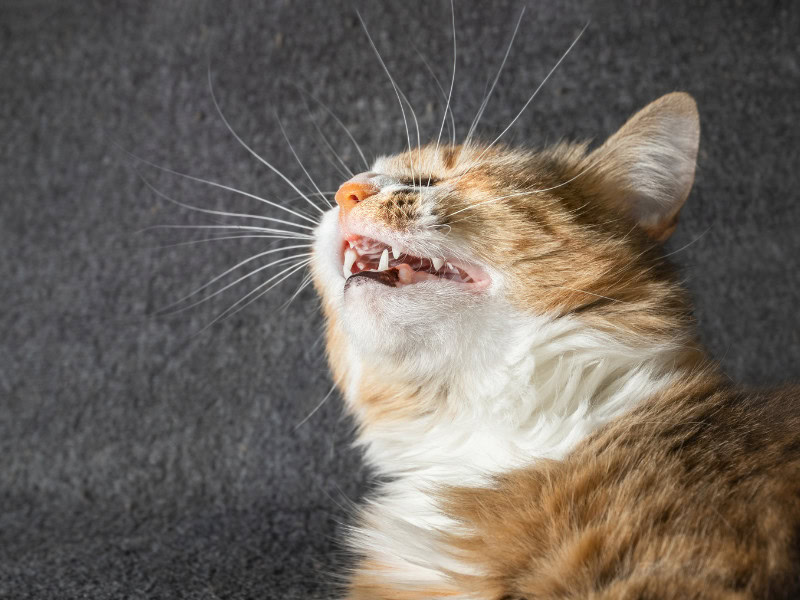
Treating Your Cat’s Sneezing Based on the Underlying Cause
Once your veterinarian diagnoses the cause of your cat’s sneezing, they can develop a targeted treatment plan and get your cat on the road to recovery. The specific treatment approach will depend on the diagnosis, but may include medications, supportive care, or even surgery in some cases.
Antibiotics
If your cat’s sneezing is caused by a bacterial infection, your veterinarian will likely prescribe antibiotics to treat the infection.
Make sure to give the antibiotics as directed and complete the entire course, even if your cat’s symptoms improve before the medication is finished. This helps prevent the development of antibiotic-resistant bacteria and ensures a full recovery.
In some cases, your vet may also recommend a nasal flush to help clear out any mucus or debris that may be contributing to your cat’s sneezing. This is usually done under sedation to minimize stress and discomfort for your cat.
Antiviral Medications
While there is no cure for viral infections like feline herpesvirus, antiviral medications can help manage symptoms and reduce the severity of the infection. Your veterinarian may prescribe antiviral drugs, along with supportive care like fluid therapy and nutritional support to help recovery.
Even with treatment, some cats may remain chronic carriers of feline herpesvirus. This means they may have flare-ups of symptoms throughout their lives, especially during times of stress or illness. However, with proper management and care, most cats with feline herpesvirus can still enjoy a good quality of life.
Surgery for Dental Disease or Tumors
If your cat’s sneezing is caused by advanced dental disease or a nasal tumor, surgical intervention may be necessary.
Dental surgery can remove infected teeth and address any underlying inflammation or infection in the nasal passages.
For nasal tumors, surgical removal of the growth, along with radiation therapy or chemotherapy, may be recommended depending on the type and extent of the tumor.
While the thought of surgery can be scary, keep in mind that this is often the best way to help your cat and improve their overall health and quality of life. Your veterinarian will work with you to develop a treatment plan that takes into account your cat’s individual needs and circumstances.
Treating Allergies
If your cat’s sudden sneezing is attributed to allergies, treatment will focus on identifying the allergen and removing it from their environment.
This may involve changing their diet, using hypoallergenic bedding and litter, or minimizing exposure to environmental irritants like pollen or dust. In some cases, your veterinarian may prescribe antihistamines or corticosteroids to manage allergic symptoms and provide relief for your sneezing cat.
My own Sphynx cat, Joey, has problems with allergies. It took me a while to figure out that it wasn’t anything in her environment but her food that was making her sneeze!
It may take some trial and error to identify the specific allergen triggering your cat’s sneezing, but with patience and persistence, it’s usually possible to find a solution that works for your feline friend.
Key Takeaway:
If your cat can't stop sneezing, acts weird, or breathes funny, see a vet fast. They could have something serious going on. Quick action might just save their life.
Conclusion
Sudden, excessive sneezing in cats can be caused by a variety of factors, from viral infections to allergies, from dental issues to something stuck in their nose. While some causes are minor and will resolve on their own, others may require veterinary care.
Regardless of the underlying cause of your cat’s sneezing, it’s important to work closely with your veterinarian throughout the treatment process. Follow their recommendations carefully, and don’t hesitate to reach out if you have any questions or concerns.
With proper care and attention, most sneezing cats can make a full recovery and get back to their normal, purring selves in no time. Remember, as a cat parent, you know your furry companion best. Trust your instincts and don’t hesitate to reach out for help when needed.
[Image credits: All images are used under license or with permission]

